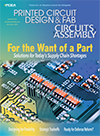News
EL SEGUNDO, CA — Intel Corp. experienced a dramatic decline in semiconductor revenue in the second quarter and posted its lowest quarterly market share in more than four years, according to a new ranking from iSuppli Corp.
Following an increase in its revenue and market share in 2005, the world’s largest chipmaker in the second quarter saw its semiconductor revenue fall 12.8% sequentially and its share of the global chip market shrink to 11.4%, down from 13.2% in the first quarter.
That is the lowest share for Intel since iSuppli began tracking quarterly semiconductor market shares in the first quarter 2002.
“Following such an impressive 2005, this represents a major reversal of fortune for Intel,” said Dale Ford, vice president of market intelligence services at iSuppli. “However, Intel’s recent actions show it understands the need to improve its efficiency and sharpen its focus on its core business of microprocessors and integrated circuits for computing systems.”
Top-10 Semiconductor Suppliers, Q2 2006 (in US$ millions)
Q2 2006 Revenue %Change
1. Intel 7,095 -12.4%
2. Samsung 4,481 1.5%
3. TI 3,175 5.2%
4 . STM 2,495 5.6%
5. Toshiba 2,328 0.5%
6 . Renesas 2,081 6.0%
7 . Hynix 1,694 17.1%
8 . Philips 1,534 4.4%
9 . Freescale 1,527 4.2%
10. NEC 1,380 -0.4%
Others 34,462 2.9%
Following an increase in its revenue and market share in 2005, the world’s largest chipmaker in the second quarter saw its semiconductor revenue fall 12.8% sequentially and its share of the global chip market shrink to 11.4%, down from 13.2% in the first quarter.
That is the lowest share for Intel since iSuppli began tracking quarterly semiconductor market shares in the first quarter 2002.
“Following such an impressive 2005, this represents a major reversal of fortune for Intel,” said Dale Ford, vice president of market intelligence services at iSuppli. “However, Intel’s recent actions show it understands the need to improve its efficiency and sharpen its focus on its core business of microprocessors and integrated circuits for computing systems.”
Top-10 Semiconductor Suppliers, Q2 2006 (in US$ millions)
Q2 2006 Revenue %Change
1. Intel 7,095 -12.4%
2. Samsung 4,481 1.5%
3. TI 3,175 5.2%
4 . STM 2,495 5.6%
5. Toshiba 2,328 0.5%
6 . Renesas 2,081 6.0%
7 . Hynix 1,694 17.1%
8 . Philips 1,534 4.4%
9 . Freescale 1,527 4.2%
10. NEC 1,380 -0.4%
Others 34,462 2.9%
AMSTERDAM -- Greenpeace wants electronics companies to clean up their acts.
The activist environmental protection organization this week released its study of the "green credentials" of the top electronics OEMs. Ranked on their use of toxic chemicals and electronic waste (e-waste) policies, Dell and Nokia scored highest -- albeit a "barely respectable" 7 out of 10 -- while Apple, Motorola and Lenovo finished at the bottom of the class. The average score for the 14 companies reviewed was 4 of 10.
The activist environmental protection organization this week released its study of the "green credentials" of the top electronics OEMs. Ranked on their use of toxic chemicals and electronic waste (e-waste) policies, Dell and Nokia scored highest -- albeit a "barely respectable" 7 out of 10 -- while Apple, Motorola and Lenovo finished at the bottom of the class. The average score for the 14 companies reviewed was 4 of 10.
JACKSON, MI -- EMS firm Sparton Corp. reported net sales of $50.5 million for its fourth quarter ended June 30, up 9.6% over last year. Net income fell 95% to $468,000
from $4.94 million last year.


